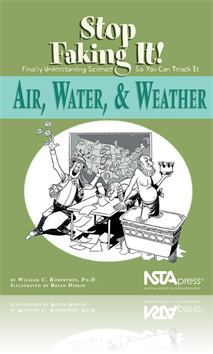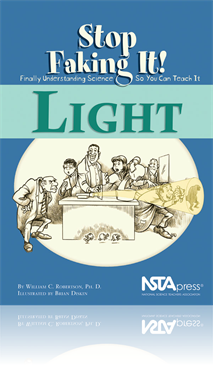All Physical Science resources
Book Chapter
We now know enough about atoms and how they combine to investigate a number of different chemical reactions. We’ll even be able to represent those reactions with symbols that tell us how many of each kind of atom we begin with and how many of each ...
Book Chapter
The word organic has lots of meanings in everyday life. Organic vegetables are ones grown without pesticides and organic beef comes from cattle that haven’t been given antibiotics. When it comes to chemistry, organic sometimes means something el...
NSTA Press Book
Uncovering Student Ideas in Science, Volume 2: 25 More Formative Assessment Probes
If Hollywood filmed this sequel, the studio would call it “Probes II: More Battles Against Misunderstandings.” Like the blockbuster before it, Volume 2 will reveal the surprising misconceptions students bring to the classroom—so you can adjust ...
By Page Keeley, Francis Eberle, Joyce Tugel
NSTA Press Book
More Picture-Perfect Science Lessons: Using Children’s Books to Guide Inquiry, K-4
Teachers raved when NSTA Press published Picture-Perfect Science Lessons .* They loved its lively mix of kid-magnet books, Standards-based science content and ready-to-teach lessons. So what could be more perfect? More Picture-Perfect Science Lesso...
By Karen Ansberry, Emily Morgan
Book Chapter
The purpose of this assessment probe is to elicit students’ ideas about intensive and extensive properties of matter. The probe is designed to find out which properties students think will change if the amount of material changes and which will sta...
Book Chapter
The purpose of this assessment probe is to elicit students’ ideas about density. The probe is designed to find out if students think changing the size of an object affects its density....
Book Chapter
If you understood the first two chapters, you now know how to describe motion (using velocity and accelerations) and you know what causes changes in motion (net forces do it). Remember that net force refers to what you get when you consider the tota...
Book Chapter
The contents of this chapter deal with air pressure and water pressure and what causes those things to increase and decrease. In addition, the real-world results of those increases and decreases in air and water pressure will be addressed....
Book Chapter
Balloons and Other Things That Sometimes Float
Hot air balloons float--sometimes. Regular old balloons that you get at a party float--sometimes. Boats float--sometimes. What makes them float and what makes them sink? How can a boat made of steel float but a solid chunk of steel sink to the bottom...
Book Chapter
Before moving on to weather patterns, there are a few concepts about air and water that haven't been covered thus far. This chapter ties together these loose ends and prepares readers for a better understanding of the various processes that cause wea...
Book Chapter
This book starts with a rather simplistic view of what light is. This chapter starts with a simple explanation which will be easy to understand and it will explain quite a few things. Also, historically, it's the one that came first; hence the title...
Book Chapter
You're probably really upset that all you have so far is a simple little ray model of light. When do we get to the good stuff, you say? How about now? As a bonus, you get to look at lots of pretty colors. This chapter addresses how light can be model...
Book Chapter
It's time to take some of the things we know about light and put them to good use. In this chapter, the author discusses various optical instruments like antennae and lenses, and in the Applications section, you get to learn how telescopes work. That...






